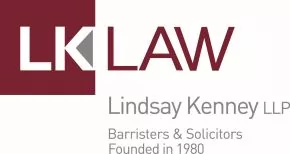Whether traveling to Canada as a tourist, or for business, foreign travellers will want to ensure they are up to speed on Canada's new Electronic Travel Authorization (eTA) requirement. Beginning March 15, 2016, visa-exempt foreign nationals who fly to or transit through Canada will need an eTA. This means that foreign travellers who currently do not need a visa to enter Canada, will now need an eTA to fly or transit through Canada.
The eTA is meant to be a pre-travel screening process that is completed online. Once received, the eTA functions as an entry authorization that gets electronically linked to a person's passport.
The requirement is being implemented by the Canadian government pursuant to the Perimeter Security and Economic Competitiveness Action Plan, which was made between the United States and Canada a few years ago. The goal is to establish a common approach for screening visa-exempt foreign travellers so that threats can be identified before their arrival within the North American perimeter. The United States has had a similar eTA program in place since 2008.
How do you know if you need an eTA?
All visa-exempt foreign nationals who fly to or transit through Canada will require an eTA. It is important to note that the eTA requirement is only for people flying or transiting through Canada; if you are entering Canada by land or sea, then an eTA will not be required. The Citizenship and Immigration Canada website provides a list of countries whose citizens will require an eTA. For instance, that list includes: Australia, British citizens, France, Japan, Ireland, Republic of Korea, Spain, Sweden, and Switzerland. Citizenship and Immigration Canada
There are some exceptions - the biggest one being for United States citizens. They do not need an eTA. Citizenship and Immigration Canada also provides eTA exceptions for various other groups of people. Other exempted groups include:
- foreign nationals who are on a flight that makes an unscheduled stop in Canada due to an emergency or some other unforeseen circumstance;
- certain transportation crew members;
- accredited diplomats; and
- members of armed forces belonging to certain designated countries.
An eTA is also not required for Canadian permanent residents who are flying to Canada. But, they will need to have their Canadian permanent resident card with them as they travel or they may be denied entry. Permanent residents of the United States, on the other hand, will need an eTA.
How is an eTA obtained?
An eTA is obtained by completing an online application, which is available on the Citizenship and Immigration Canada website. Once approved, there is no need to print any physical documents, as the eTA will simply be electronically linked to the applicant's passport. According to the Citizenship and Immigration Canada website, the processing time for most eTA applications will be within minutes. However, they do advise that some applications may take longer and, in some cases, the application may even require further information before it can be processed. Once approved, the eTA stays valid for five years or until the passport it is linked to expires, whichever comes first.
Visa-exempt foreign nationals who are submitting a Canadian study or work permit do not need to apply for an eTA. Study or work permit applicants will automatically be considered for an eTA as well.
If you are a foreign national, who is visa exempt for entry into Canada, and you are planning to fly to or transit through Canada, then you will likely require an eTA beginning March 15, 2016. There are exceptions to the eTA requirement so it is best to go to the Citizenship and Immigration Canada website and determine if you need one.
The eTA application process, for the most part, is quick and the eTA may be issued within minutes. However, if you have forgotten to apply for the eTA and have already flown to Canada, Citizenship and Immigration Canada does indicate that an eTA may be obtained at the last minute. Mobile phones can, apparently, be used to apply for the eTA online. However, it goes without saying that travellers should try to obtain the eTA well in advance, prior to flying to Canada, and not leave it until the last minute.
Note: the eTA is linked to your passport, therefore you will need to travel with the passport that was used for the eTA application.
About Mackrell International – Canada - Lindsay Kenney LLP is a full service business law firm with offices in Vancouver and Langley, BC and a member of Mackrell International. Mackrell International – Canada is comprised of four independent law firms in Alberta, British Columbia, Ontario and Quebec. Each firm is regionally based and well-connected in our communities, an advantage shared with our clients. With close relations amongst our Canadian member firms, we are committed to working with clients who have legal needs in multiple jurisdictions within Canada.
This article is intended to be an overview and is for informational purposes only.
